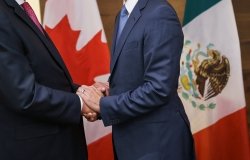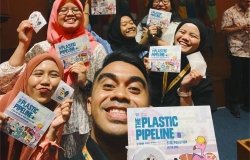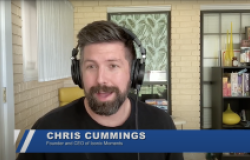Meeting with Argentine Graduate Students from the "Fundación Universitaria del Río de La Plata"
Joseph S. Tulchin, Director of the Latin American Program, and junior scholars that collaborate with the Argentina @ the Wilson Center met with Argentine students and graduates to discuss the work done by the Center, and the current situation in Argentina.
Overview
Participants:
Joseph Tulchin, Director, Latin American Program, WWICS
Tamara Taraciuk, Junior Scholar, WWICS
Melina Ginszparg, Junior Scholar, WWICS
Rubén Octavio Villán, FURP President
Matías Campodónico, Journalist, German International News Agency (DPA)
Guillermo Chaves, Deputy Clerk, General Attorney's Office, Buenos Aires
Antonio De Matos Figueiredo, Professor "Instituto de Capacitación Privada", Santiago del Estero
Javier Díaz Araujo, Superior Student Council, "Universidad Nacional de Cuyo", Mendoza
María del Mar Enrico, Member, Center of Political and International Studies, Rosario
Flavio Gaitán, Legislative Advisor, Vice-presidency House of Representatives, Buenos Aires
Julia Geraldine, Research Assistant, "Universidad de San Andrés", Buenos Aires
Atilio González, Advisor, MERCOSUR Relations Office, National Institute of Cinematography
Mara Pegoraro, Non-active Member, Argentine Youth Organization for the United Nations
Francisco Resnicoff, Junior Researcher, OKITA Foundation
Shunko Rojas, General Coordinator Justice Department, CIPPEC, Buenos Aires
Germán Sturzenegger, Regional Administrator, International Youth Federalism Network
Leonardo Torres, Junior Economist, "Fundación Mediterránea", Mendoza Branch Office
Sebastián Zanoni, Academic Director, Business School, "Fundación del Tucumán"
The "Fundacion Universitaria del Rio de La Plata" (FURP), is a private, non-profit organization created in 1970 for young Argentine professionals to promote non-biased, non-partisan dialogue on political, economic, and social issues, and to create young responsible leaders. The fifteen Argentine participants selected by FURP this year came to the United States to learn about American life and to compare viewpoints of the two countries. All group members are professionals, journalists, academics, and government officials. During the two-week visit to Washington, D.C., participants study U.S. social, economic, and political processes and visit NGOs and governmental organizations.
The International Visitor Program's coordinators asked for a meeting at the Woodrow Wilson Center to know more about the Center and to debate issues of Argentine reality from the U.S. perspective.
Joseph Tulchin welcomed the participants and explained to the group the work done by the Woodrow Wilson Center's Latin American Program. After the opening remarks, Tamara Taraciuk described her research on Citizen Security and on Argentina, and explained how it is related to the Latin American Program's work. After that, Melina Ginszparg commented on her research on Trade and Hemispheric Security and described how it is linked to the Creating Community Project of the Latin American Program.
During the Q&A, the Argentine visitors demonstrated great interest regarding the research projects and activities done by the Latin American Program. Students received further information on the Junior Scholar's selection process, sources of financial aid, the selection of topics researched by the Program Staff, and how projects are implemented. The discussion also focused on current issues of Argentina and the Latin American region. Specifically, participants were interested in the findings of the action-research plan carried out by the Citizen Security project. The debate also referred to the challenges posed to the international community by the "new security threats" and how they impact on Latin America. Joseph Tulchin stated that the region doesn't have a tradition of protagonism in the international system. Interests of Latin American countries are not necessarily benefited by the policies carried out by the United States. Thus, noting that the countries of the region share common values, they should develop cooperative mechanisms to deal with the complex security agenda and present challenges. In the closing remarks, participants commented on how Néstor Kirchner's foreign policy is affecting U.S.-Argentina bilateral relations.
Thank you for your interest in this event. Please send any feedback or questions to our Events staff.










